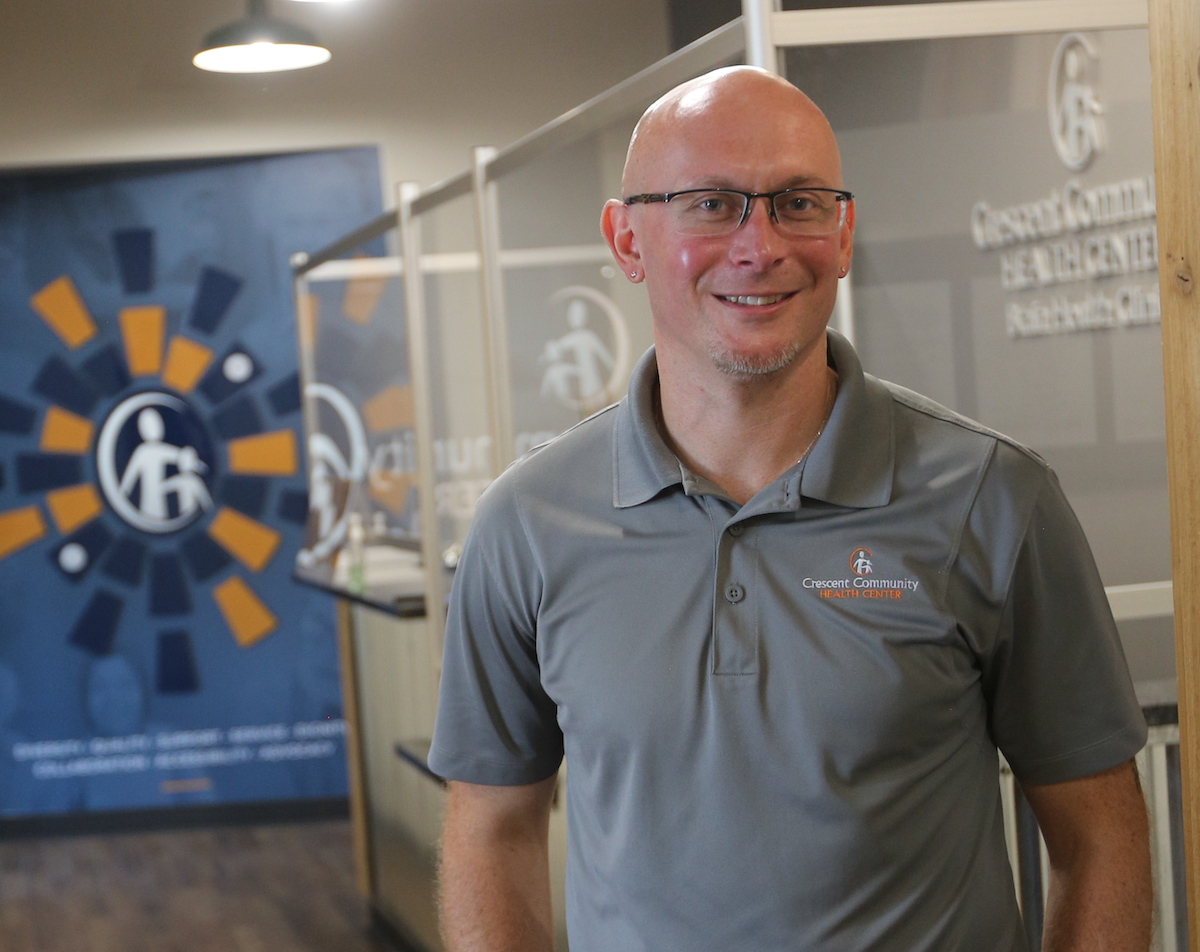Bridging Brain Health Gaps

Pictured: Jon Decker, director of Crescent Community Health Center’s Brain Health Clinic. Located in Dubuque’s Washington Neighborhood, the center serves many residents who have historically lacked access to resources.
Julie Homb, a licensed therapist in Dubuque, has seen an increase in the number of people seeking counseling since the beginning of 2020 — and in the long run, that could be a positive sign.
“I can see a little spark, a little bit of light where it’s normalized to have a conversation about our brain health,” she says. “The pandemic has actually shown us that it’s OK to reach out.”
A Community Conversation
Homb was one of four panelists who took part in a Community Foundation discussion this summer called “Bridging Brain Health Gaps,” which focused how organizations across the Dubuque region are removing barriers to services and reducing the stigma around mental illness.
The discussion, which drew more than 60 attendees, was part of the Foundation’s new Community Conversations series. During these monthly virtual discussions, community members can learn about ways the Foundation and its partners are addressing critical challenges and strengthening the region.
WATCH NOW: Recording of the "Bridging Brain Health Gaps" Community Conversation
Addressing Needs
“In our 2016 community needs assessment, brain health overwhelmingly rose to the top of issues that the Foundation and community needed to put time and resources into,” says Peter Supple, who facilitates the Community Foundation’s brain health access initiative and was part of the panel.
Panelists agreed that there are signs that the stigma around mental illness is easing, thanks in large part to the Brain Health Now campaign. Led by Debi Butler, it has used public messaging to emphasize that just like other organs in our body, the brain also needs care,
“We are reaching 99 counties in Iowa, and we are working at the state level to change language around ‘mental health’ to ‘brain health,’” says Butler, who was on the panel.
Finding Solutions
One of the biggest developments in recent years has been the Community Foundation’s work bringing new voices to the table to take a holistic approach to brain health, says panelist Sue Whitty, president of Mental Health America of Dubuque County.
By including leaders from areas like education, law enforcement and faith communities, the Foundation opens new pathways for people to receive the support they need.
Sometimes this these pathways are new services offered by health care providers, such as Crescent Community Health Center’s Brain Health Clinic, which offers integrated care in a setting where everyone is welcome regardless of their insurability.
Other times, they are non-traditional solutions, such as the Hillcrest Family Service Mobile Crisis Unit, which police officers can call when they encounter a person experiencing a brain health emergency.
Still, Dubuque region needs more acute care services for brain health, access points where people can drop in for immediate face-to-face therapy, says Jon Decker, director of Crescent’s Brain Health Clinic. Rural areas in particular can be service deserts, and the region as a whole needs more racially and ethnically diverse providers who can connect with diverse patient populations.
“Dubuque is doing a good job increasing access to services,” says Jon Decker, director of Crescent’s Brain Health Clinic. “However, the need continues to grow.”
Support our brain health access initiative. Contact Peter Supple at peter@dbqfoundation.org or 563-588-2700 for more information.